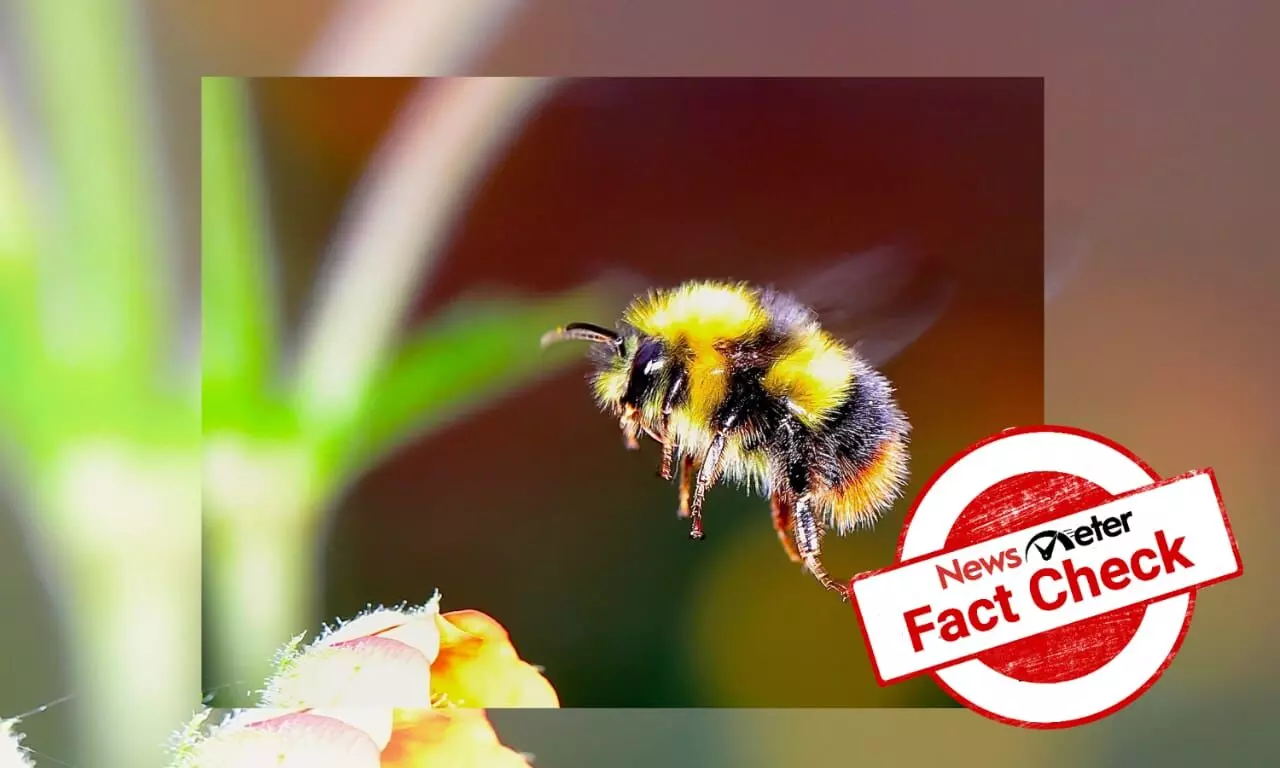Can a bee sting kill breast cancer cells?
A Facebook post claims that a bee sting can potentially kill breast cancer cells.
By Sunanda Naik
Hyderabad: A Facebook post claims that a bee sting can potentially kill breast cancer cells.
(Screengrab of the viral post)
The viral post reads, “If you have cancer, go get stung by a bee. The venom can slow down and kill cancerous cells. Look it up no cap!”
According to the Centers for Disease Control and Prevention, breast cancer is a disease in which cells in the breast grow out of control. There are different kinds of breast cancer. The kind of breast cancer depends on which cells in the breast turn cancerous. Breast cancer can begin in different parts of the breast.
Can getting stung by a bee cure this fatal disease? Let’s find out.
Fact Check
NewsMeter found the claim to be false.
The misinformation goes back to the Harry Perkins Institute of Medical Research, Australia when it published research in 2020 that found honeybee venom could kill aggressive breast cancer cells. Here, 312 honeybees and bumblebees venom were tested for its efficacy on cancer cells, which resulted in a 100% cancer cell death.
It should be noted that the researchers mention that the study is currently in laboratory exploration stage. More research and human trials are needed to come to a conclusive finding.
Moreover, the study concludes that there are currently no clinically effective targeted treatments for Triple-negative breast cancer (TNBC).
Further, according to an article in ULCA Health, “It may seem that using bee venom to fight cancer comes out of the left field, but the idea actually reaches back to the dawn of medicine.”
The study conducted by Harry Perkins Institute of Medical Research added, “…the serum formulated from the bee venom killed the cancer cells within an hour, and at the same time did limited damage to the surrounding healthy cells. The researchers found that the peptide achieved this by disrupting the signaling pathways that cancer cells use to replicate, thus significantly slowing tumor growth.”
But it cautioned, “These findings hold promise, but challenges remain. Compounds that kill cancer in a petri dish don’t always translate into successful medications. More research is needed to create a safe and effective drug.”